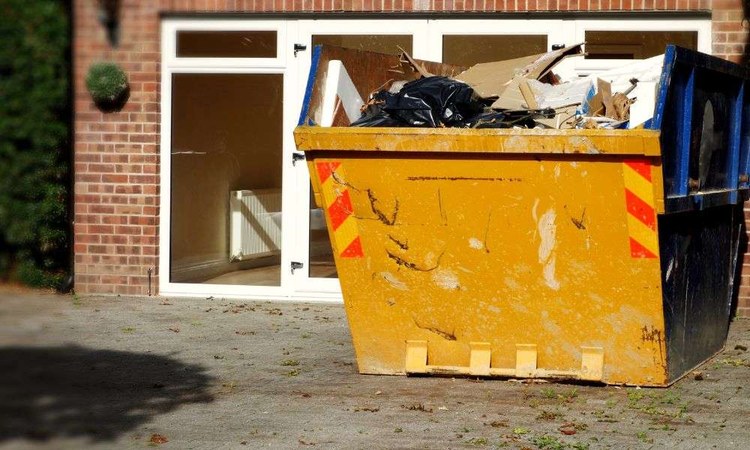The Ultimate Guide to Dumpster Rental: What You Need to Know
Dumpster rental is a convenient solution for managing large amounts of waste during home renovations, construction projects, or major cleanouts. Whether you're a homeowner tackling a big project or a contractor overseeing multiple job sites, understanding the ins and outs of dumpster rental can save you time, money, and headaches. This comprehensive guide will walk you through everything you need to know about renting a dumpster, from choosing the right size to finding a reliable service provider in your area.

What is a dumpster rental service?
A dumpster rental service provides temporary waste containers for residential, commercial, or industrial use. These services typically offer a range of dumpster sizes to accommodate various project needs. When you rent a dumpster, the company delivers it to your specified location, leaves it for an agreed-upon period, and then picks it up when you’re finished. This service is ideal for disposing of large amounts of debris, construction materials, or household junk that won’t fit in your regular trash bins.
How do I choose the right dumpster size for my project?
Selecting the appropriate dumpster size is crucial to ensure you have enough capacity for your waste without overpaying for unused space. Dumpster sizes are typically measured in cubic yards, with common options ranging from 10 to 40 cubic yards. Here’s a general guide to help you choose:
-
10-yard dumpster: Suitable for small home cleanouts or minor renovation projects
-
20-yard dumpster: Ideal for medium-sized remodeling jobs or large garage cleanouts
-
30-yard dumpster: Perfect for major home renovations or new construction
-
40-yard dumpster: Best for large-scale construction or commercial projects
Consider the type and volume of waste you’ll be generating, as well as any space constraints at your site when selecting a size.
What factors affect the cost of dumpster rental?
Several factors influence the cost of renting a dumpster. These include:
-
Dumpster size: Larger containers generally cost more to rent
-
Rental duration: Longer rental periods may increase the overall cost
-
Type of waste: Some materials, like hazardous waste, may incur additional fees
-
Location: Prices can vary depending on your area and distance from the rental company
-
Weight limits: Exceeding the weight limit can result in overage charges
-
Seasonal demand: Prices may fluctuate during peak seasons
To get an accurate estimate, it’s best to contact local dumpster rental services and provide specific details about your project.
How do I find a reputable dumpster rental service in my area?
Finding a reliable dumpster rental service is essential for a smooth experience. Here are some tips to help you locate a reputable provider:
-
Search online for “dumpster rental services” in your area
-
Read customer reviews and ratings on platforms like Google, Yelp, or the Better Business Bureau
-
Ask for recommendations from friends, family, or local contractors
-
Verify that the company is licensed and insured
-
Compare quotes from multiple providers to ensure competitive pricing
-
Inquire about their policies on delivery, pickup, and potential additional fees
Remember to communicate clearly about your project requirements and ask any questions you may have before booking a rental.
What should I know about dumpster rental regulations and permits?
Dumpster rental regulations can vary depending on your location and the nature of your project. In some cases, you may need to obtain a permit to place a dumpster on public property, such as a street or sidewalk. Here are some key points to keep in mind:
-
Check with your local government or homeowners’ association for specific requirements
-
Obtain necessary permits before the dumpster is delivered
-
Be aware of restrictions on where the dumpster can be placed
-
Understand what materials are prohibited from disposal in the dumpster
-
Follow weight limits and loading guidelines to avoid penalties
Many reputable dumpster rental services can assist you with understanding local regulations and obtaining required permits.
What are some tips for efficient and safe dumpster use?
To make the most of your dumpster rental and ensure safety, consider these tips:
-
Plan your loading strategy to maximize space
-
Break down large items when possible
-
Distribute weight evenly throughout the dumpster
-
Don’t overload the container beyond the fill line
-
Keep the area around the dumpster clear for easy access
-
Cover the dumpster when not in use to prevent unauthorized dumping
-
Be mindful of prohibited items, such as hazardous materials or electronics
-
Communicate with the rental company if you need an extension or early pickup
By following these guidelines, you can ensure a smooth and efficient dumpster rental experience while avoiding potential issues or additional charges.
| Provider | Services Offered | Key Features/Benefits |
|---|---|---|
| Waste Management | Residential and commercial dumpster rental | Nationwide coverage, variety of sizes, online ordering |
| Republic Services | Temporary and permanent dumpster solutions | Flexible rental periods, recycling options, easy scheduling |
| Dumpsters.com | Dumpster rental for various project types | Transparent pricing, local providers network, customer support |
| Budget Dumpster | Roll-off dumpster rental for homeowners and contractors | Competitive pricing, extended rental periods, wide service area |
| 1-800-GOT-JUNK? | Full-service junk removal and dumpster alternatives | No-contact service, upfront pricing, same-day availability |
In conclusion, renting a dumpster can greatly simplify waste management for both residential and commercial projects. By understanding the rental process, choosing the right size, and working with a reputable provider, you can ensure a hassle-free experience. Remember to consider local regulations, plan for efficient use, and prioritize safety throughout your rental period. With these insights, you’re well-equipped to tackle your next big project with confidence.




